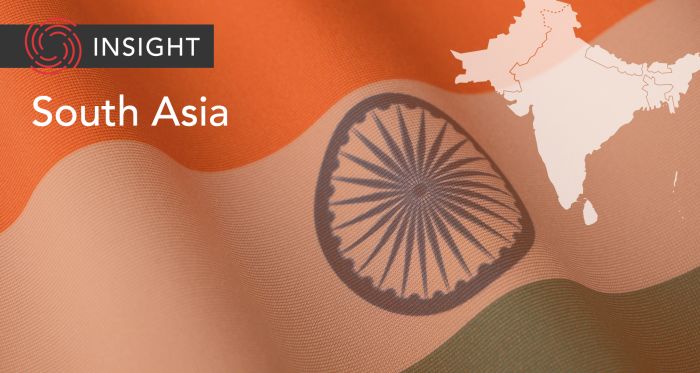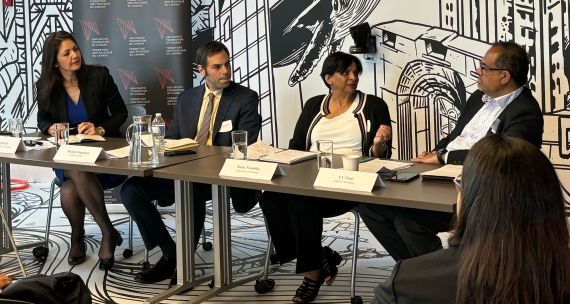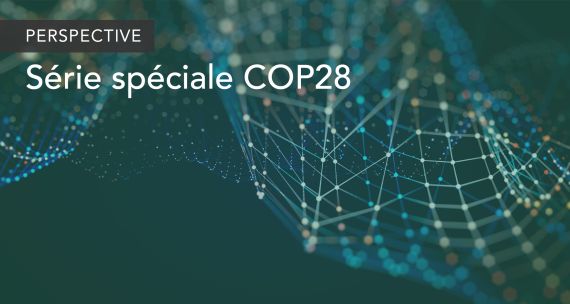The Takeaway
Canada's claim of the Indian government's potential involvement in the assassination of a Sikh separatist on Canadian soil, followed by India’s denial of the allegation, has sparked a diplomatic standoff between the two countries. After suspending visa services for Canadians on September 21, including from third-party countries, the Indian foreign ministry reportedly ordered Canada on October 2 to remove 41 of its diplomats from India. The Canada-India diplomatic spat has been sensationalized by India’s ubiquitous Hindi media — widely read but subject to increasing press censorship — leading to concerns about the future of the bilateral relationship.
In Brief
- On September 18, Canadian Prime Minister Justin Trudeau informed Parliament that the country's security agencies possessed "credible" intelligence pointing to the Indian government’s involvement in the June 2023 assassination of Hardeep Singh Nijjar, a pro-Khalistan leader in British Columbia. The Indian government has rejected these allegations.
- The issue has garnered widespread media attention in India, appearing in the headlines of most media outlets, and has been the highest trending topic on Indian social media networks since Trudeau’s announcement.
- Hindi media’s coverage of the issue has been characterized by sensationalist reporting, ranging from alleged “terror attack” threats in Punjab, to arguments about Khalistani links to Pakistan’s Inter-Services Intelligence. The coverage, solely critical of Canada’s allegations, has centred on three potential implications of the mounting tensions: a negative impact on bilateral trade, immigration issues for Indian students in Canada, and decreased exports from Punjabi farmers in Canada.
- In contrast, non-Hindi-language media in India has remained relatively neutral, focusing on relaying facts rather than fuelling speculation.
Implications
- Heightened concerns about immigration
Indian media have speculated about the impact of Trudeau’s allegations on the immigration status of Indian students in Canada, suggesting that Canada may reduce its intake of Indian students. Holding 41 per cent of Canada’s study permits in 2022, Indian students represent Canada’s largest international student population and contributed an estimated C$6.2 billion to Canada's economy in 2021. India’s Hindi media have raised concerns among parents and students in Punjab regarding the possibility of an entry ban. However, there is currently no credible information or indication of a potential ban, and the implementation of such a ban would not be in Canada’s national interest. The Indian government’s travel advisory and sensationalist headlines speculating about the safety of Indian students could lead to fewer students selecting Canada as a destination for higher education, potentially decreasing the Indian student population in Canada.
- Impact of trade tensions on Canadian farmers
Canada is home to the largest Sikh population outside India, at 770,000, and Sikhs are prominent in some segments of Canada’s farming population. Elements of the Indian media are suggesting Sikh farmers in Canada may be adversely affected by the ongoing row. While there is no current indication that India will impose punitive trade measures, such actions, if they were taken, could reduce Canada's agricultural exports to India, which were nearly C$400 million in 2022. Indeed, such actions could negatively impact Canada’s Sikh farmers, as reported in 2017 when India imposed a 50 per cent tariff on yellow peas to protect its domestic producers.
- Declining press freedom
With Hindi being the most widely spoken language in India and Hindi publications significantly more popular than the country of 1.4 billion’s alternative language publications, the sensationalist coverage of the issue doesn’t bode well for a quick resolution. Press freedom in India has declined under the Bharatiya Janata Party’s (BJP) leadership, culminating in billionaire and Prime Minister Narendra Modi ally Gautam Adani’s 2022 takeover of news channel NDTV and the Rajya Sabha’s (Upper House) passing of the 2023 Digital Personal Data Protection Bill. That contentious bill gives the government increased powers to block access to information, compel journalists to reveal private sources, and censor news. Considering recent concerns over the government’s blocking of Punjabi journalists’ social media accounts, India’s growing culture of media censorship and shutdowns risks leaving the population without access to neutral reporting around Canada-India relations, inflaming public sentiment and potentially influencing India’s resolve to not back down.
What’s Next
1. 2024 Indian general elections
The Khalistan movement has gained momentum among the Indian diaspora in recent months due to the impending April 2024 Indian general elections, inspiring a series of unofficial referendums on the issue in London, Melbourne, Surrey, B.C., and Brampton, Ontario. However, the movement reportedly has much greater support among the diaspora than among India’s Sikh population, which is around 1.5 to two per cent of India’s total population. Punjab’s Sikh population mostly prefers inter-ethnic peace, and some have also expressed fears that political parties may manipulate the Khalistan issue and stir ethno-religious tensions for political gain, ignoring more pressing concerns in the region such as high unemployment and a drug epidemic.
2. Deteriorating bilateral relationship
Mainstream Canadian media coverage around this diplomatic spat has focused on soothing tensions, particularly considering possible impacts on bilateral trade, already threatened after Canada paused negotiations of a Comprehensive Economic Partnership Agreement with India in August. The pause was reportedly due to increasing political tensions heightened by the Khalistan crisis. However, while economic stakes remain high, the bilateral security relationship remains stable, as confirmed by Canadian Deputy Army Chief Major General Peter Scott at September’s Indo-Pacific Army Chief Conference in New Delhi. The preference of the Canadian government for private, bilateral discussions and in Canada’s media for balanced, fact-based headlines suggests a widespread reluctance to further jeopardize Canada’s relationship with India.
• Produced by CAST's South Asia team: Prerana Das (Analyst); Suyesha Dutta (Analyst); and Deeplina Banerjee (Analyst).





